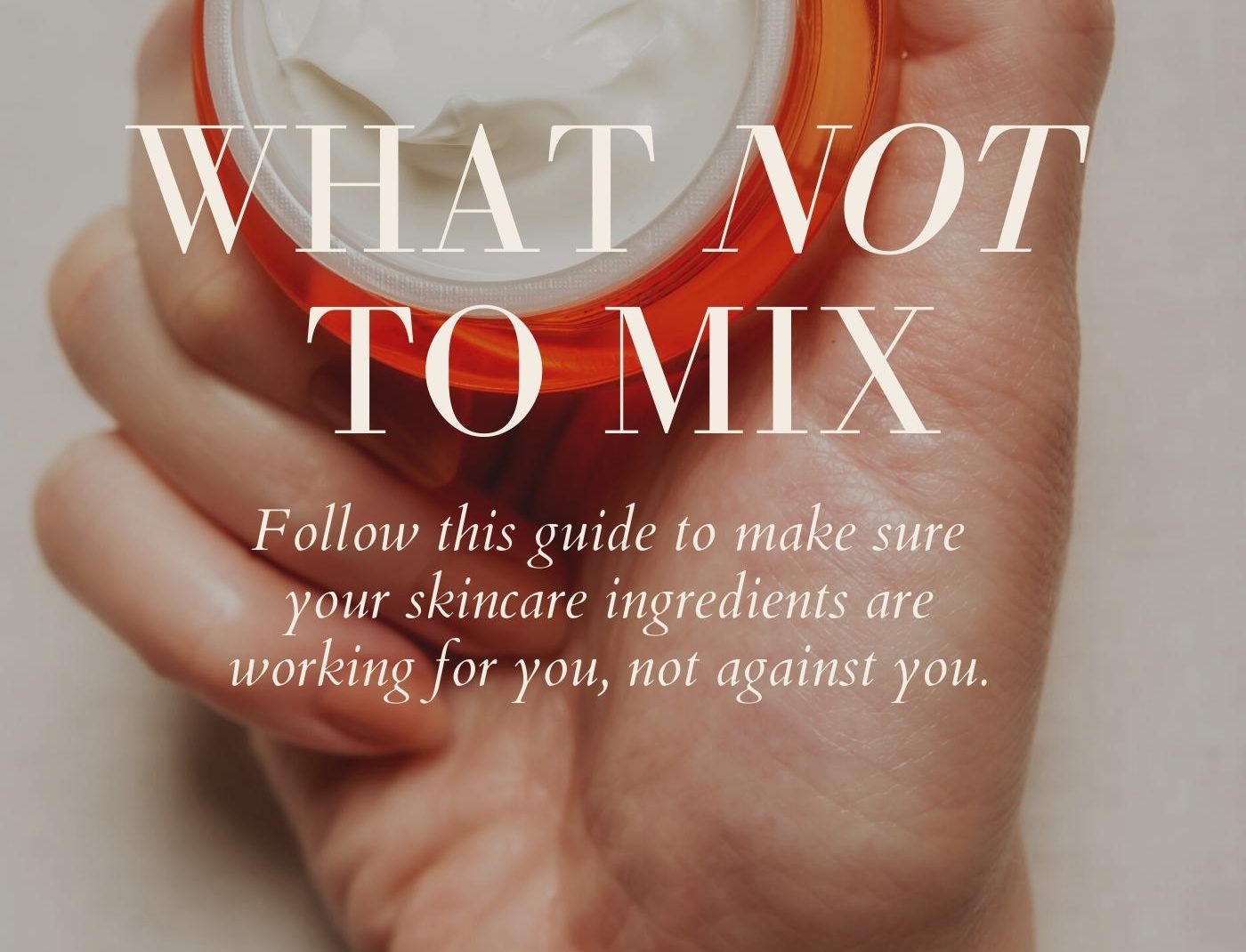If you’ve ever been excited to start a new skincare product just to be disappointed by your skin’s reaction – this is for you. It’s important to understand, skincare is a science. The chemical makeup of these products vary and much like oil and vinegar, some of them are not meant to mix. This is especially true in the delicate areas of your epidermis. Knowing what skincare ingredients to mix and which ones to keep apart is imperative when establishing a routine. This not only increases your product’s efficacy, but also saves you from wasting time and money on products you are potentially misusing.
What are our skincare necessities? Cleanser, toner, serum, moisturizer, retinol, SPF. With so many options, you have to be mindful of the ingredients in each of your individual products. Take serums for example – some may be “holistic” with no active ingredients. Others could contain niacinamide or derivatives of Vitamin C. Knowing the composition of your skincare can help you create a routine that allows your products to work together to fight your skin concerns.
Retinols:
If you want to use a chemical exfoliant or get a service like a chemical peel or hydrafacial, give the skin 3-7 days off of retinol before any service. You can also alternate nights between topical BHA/AHA applications if you are easing into retinol and have particularly congested/oily skin.
You should also avoid same-time application of Vitamin C when using a retinol. Vitamin C acts as a free radical protectant, which means it protects you throughout the day from pollution, soot, smog, and environmental damage. Because retinol does most of the work in the nighttime, you’ll want to keep these separate.

Vitamin C:
Vitamin C is notorious for being unstable. This means it can be highly affected by the pH of other skincare products and lose efficacy. This is why, like retinols, Vitamin C is best used in combination with other protective ingredients – like SPF and moisturizers. The best Vitamin C formations tend to be encapsulated – like Revision’s Vitamin C+ Correcting (link here) – allowing for a slowed absorption that is less affected by other products. Also, be mindful of using soap-based cleansers (these usually have high pH’s) before applying your Vitamin C.
Benzoyl Peroxide:
If you have acne-prone skin, you’ve probably heard of benzoyl peroxide. An amazing antibacterial and exfoliant, however this product can be incredibly drying when mixed with the wrong additions. When dealing with acne, it can be tempting to throw every product you can at your face in an effort to combat breakouts. Unfortunately, most products for acneic skin are extremely stripping and drying. This means mixing an ingredient with benzoyl peroxide with alpha hydroxy acids or beta hydroxy acids can be detrimental to your skin’s integrity. Try to stay clear of retinols and other acids (salicylic, glycolic, lactic) when using a product with benzoyl peroxide. If you do want to incorporate other actives, try and alternate days of application to prevent unnecessary dryness.
If you're interested in learning more about how to care for your skin, we can provide you with customized advice based on your individual skin type.
Join us for a complimentary consultation! To get the best possible routine for yourself, make sure to have a skin care expert lead you in the right direction. They not only know the ins-and-outs of your skin, but they also understand the science behind the products and treatments they recommend.






